.webp)
Atiku wins presidential election in Osun, Tinubu takes Ekiti
Abubakar scored 354,366 votes to win in 20 local government areas, defeating Tinubu of the APC, who scored 343,945 votes and claimed victory in 10 local governments.
Tag
.webp)
Abubakar scored 354,366 votes to win in 20 local government areas, defeating Tinubu of the APC, who scored 343,945 votes and claimed victory in 10 local governments.
.webp)
However, reports from some parts of the country indicated that INEC officials in some polling units in Lagos, Imo, and Delta states refused to snap the result sheets and consequently failed to upload them as required.
.webp)
Nigerians will go to the polls on Saturday (today) to elect their president and National Assembly members in a make-or-mar election that will define the country’s trajectory.
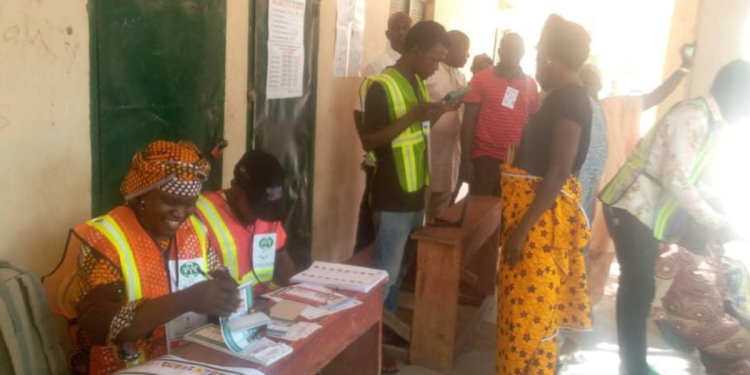
According to reports by one of our correspondents, the Independent Electoral Commission (INEC) staff members were yet to arrive at Obiakpor Local Government Area as at 12pm.
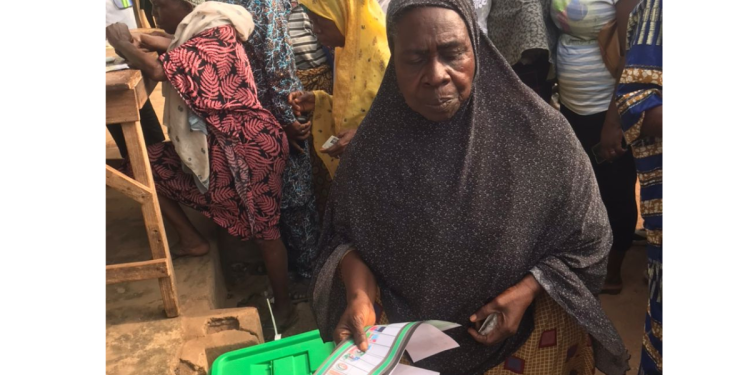
However, reports from the field show that this is not the case. The Independent National Electoral Commission (INEC) did not help the situation either.
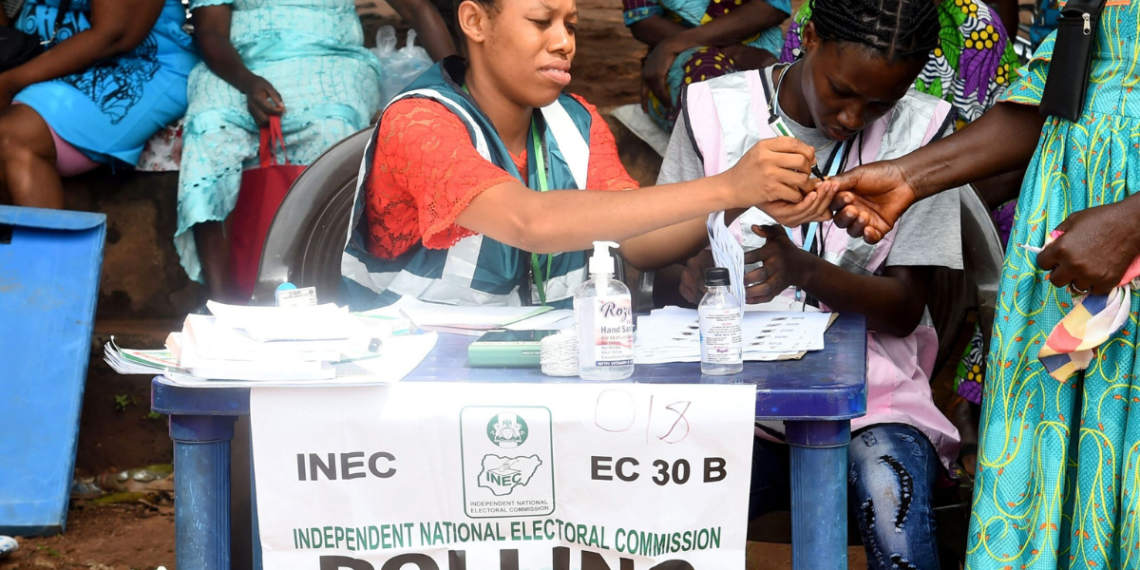
In partnership with DEAN Initiative, we polled 1,356 Nigerians across the 36 states and the FCT using a simple random sampling method. A few facts about the data are noteworthy: first, the data do not measure respondents’ probable voting choice, rather it measures their perception of candidates, parties and election readiness, generally.
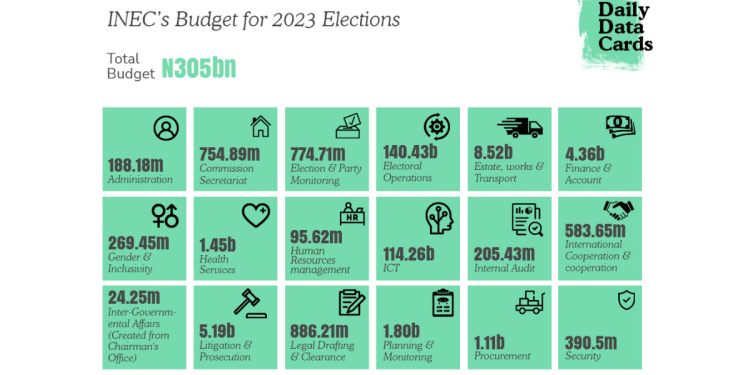
#DailyDataCard: INEC’s Budget for 2023 Elections

The Independence National Electoral Commission (INEC) has reduced the number of polling units ahead of the general elections which will begin on February 25.
.webp)
AHEAD of the 2023 general election, a coalition of 10 civil society organisations (CSOs), including Dataphyte, has identified 22 high-risk states that election stakeholders in the country and well-meaning Nigerians should pay closer attention to.
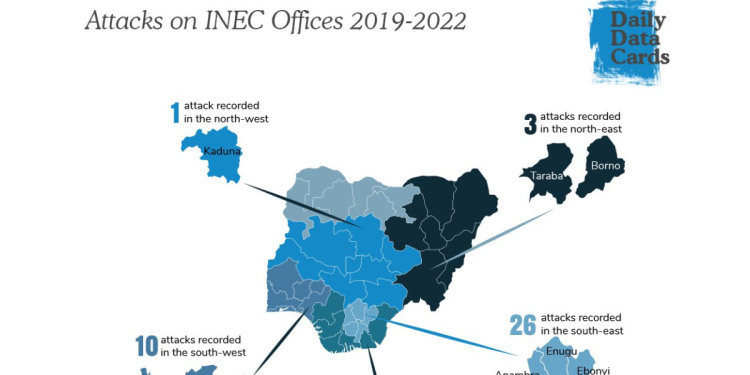
#DailyDataCard: Attacks on INEC Offices 2019-2022
.webp)
Enough is Enough Nigeria in conjunction with other civil society organisations has called on the Independent National Electoral Commission (INEC) to extend the deadline for the collection of Permanent Voters’ Cards (PVC).
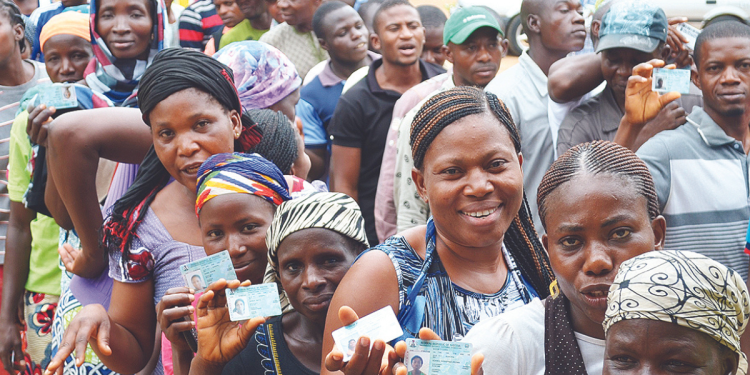
The new voter register released by the Independent National Electoral Commission (INEC) on January 11, 2023, shows that 93.46 million Nigerians are eligible to vote in the 2023 general election.
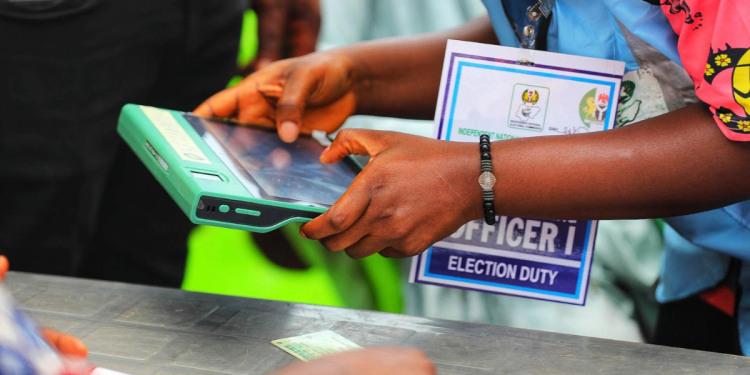
This piece is the second of a series exploring the current state of electoral technology in Nigeria. It begins with a brief summary of how technology has been deployed in several strands of Nigeria’s election management, drawing cross-country comparisons. It then proceeds to discuss the technologies that will be used in the 2023 elections, highlighting specific challenges associated with each and proffering possible solutions for INEC.
.webp)
The Independent National Electoral Commission (INEC) has pointed out potential risks and threats to the conduct of the general elections. These threats are highlighted in the electoral commission’s Election Project Plan (EPP) for the 2023 general election.
.webp)
This figure is a 61.37% increase over what was spent to conduct the 2019 general election. INEC spent N189.2 billion to conduct the last general election. The cost per voter was fixed at $6.24 at an exchange rate of N305 with a total of 84 million registered voters.